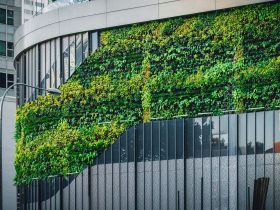In recent years, sustainability has become a significant consideration in various industries, including real estate. Sustainable real estate choices not only benefit the environment but also contribute to long-term economic and social well-being. However, when evaluating sustainable options, it is essential to consider the role of ethics. This article will explore how ethics play a crucial role in sustainable real estate choices and why they should be a guiding principle for developers, investors, and consumers.
The Importance of Sustainable Real Estate Choices
Environmental Impact
Real estate development has a significant impact on the environment. From construction to occupancy, buildings consume vast amounts of energy, contribute to greenhouse gas emissions, and deplete natural resources. Sustainable real estate choices aim to minimize these negative impacts by incorporating energy-efficient designs, utilizing renewable energy sources, and implementing water conservation measures.
Economic Benefits
Sustainable real estate choices also bring economic benefits. Energy-efficient buildings have lower operating costs, reduced maintenance requirements, and increased property values. Moreover, sustainable developments often attract environmentally conscious consumers and businesses, leading to higher demand and occupancy rates.

Social Well-being
Sustainable real estate choices positively impact social well-being. They prioritize the health and comfort of occupants by providing better indoor air quality, natural lighting, and thermal comfort. Additionally, sustainable developments often incorporate green spaces, pedestrian-friendly designs, and access to public transportation, promoting community interaction and well-being.
The Role of Ethics in Sustainable Real Estate Choices
Long-Term Perspective
Ethics in sustainable real estate choices involve taking a long-term perspective. Developers, investors, and consumers need to consider the long-term consequences of their decisions on the environment, society, and future generations. This includes evaluating the environmental impact of construction materials, the social implications of displacement and gentrification, and the economic sustainability of the project.
Transparency and Accountability
Ethical decision-making in sustainable real estate choices requires transparency and accountability. Developers and investors should provide accurate and reliable information about the sustainability features of their projects. This includes disclosing the environmental impact assessments, energy performance ratings, and certifications obtained. Consumers, on the other hand, should demand transparency and hold developers accountable for their claims.
Stakeholder Engagement
Ethics in sustainable real estate choices involve engaging stakeholders in the decision-making process. This includes consulting local communities, environmental organizations, and government agencies to ensure that the project aligns with their needs and values. Stakeholder engagement promotes inclusivity, transparency, and better decision-making, leading to sustainable outcomes that benefit all parties involved.
Social Equity and Inclusion
Ethics in sustainable real estate choices also prioritize social equity and inclusion. Developers and investors should consider the social implications of their projects, particularly in vulnerable communities. This includes ensuring affordable housing options, preserving cultural heritage, and mitigating the displacement of marginalized groups. Ethical decision-making should aim to create sustainable communities that are inclusive and address social inequalities.
Evaluating Sustainable Real Estate Choices
Certification and Standards
When evaluating sustainable real estate choices, certifications and standards play a crucial role. Certifications such as LEED (Leadership in Energy and Environmental Design) and BREEAM (Building Research Establishment Environmental Assessment Method) provide a framework for assessing the sustainability performance of buildings. These certifications consider factors such as energy efficiency, water conservation, materials used, and indoor environmental quality. Evaluating whether a project has obtained these certifications can help in making ethical and sustainable choices.
Life Cycle Assessment
Life cycle assessment (LCA) is another valuable tool for evaluating sustainable real estate choices. LCA considers the environmental impact of a building throughout its entire life cycle, from raw material extraction to demolition. It assesses factors such as energy consumption, carbon emissions, waste generation, and resource depletion. By comparing the life cycle impacts of different options, stakeholders can make informed decisions that consider the ethical implications of their choices.
Social Impact Assessment
In addition to environmental considerations, evaluating sustainable real estate choices should also include a social impact assessment. This involves analyzing the potential social consequences of a project, such as community displacement, job creation, and access to amenities. Evaluating the social impact allows stakeholders to make ethical choices that prioritize the well-being of local communities and address social inequalities.
Conclusion
Ethics play a vital role in sustainable real estate choices. By considering the long-term perspective, practicing transparency and accountability, engaging stakeholders, and prioritizing social equity and inclusion, developers, investors, and consumers can make ethical decisions that promote sustainability and benefit both the environment and society. Evaluating sustainable real estate choices through certifications, life cycle assessment, and social impact assessment further enhances the ethical decision-making process. Ultimately, ethical considerations should be a guiding principle for all stakeholders involved in the real estate industry to ensure a more sustainable and responsible future.

































